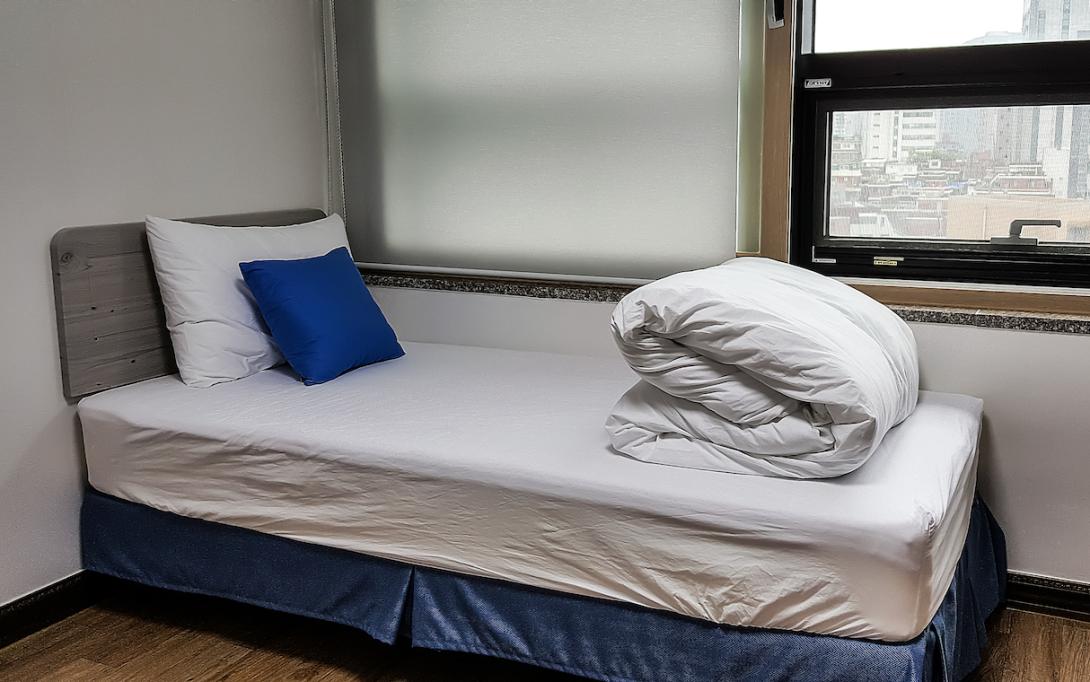
Editor's note: The initial version of this article inadvertently failed to disclose that an advocate quoted in this article had agreed to serve as a volunteer on The Lund Report's new Community Advisory Board. The board helps elevate our journalism with feedback from people with lived experience as well as experience in health care, journalism, community work or some combination thereof. I apologize for the omission; please know The Lund Report will strive to ensure it won't happen again. The board's first meeting was Sept. 7; if you are interested in learning more, email me at [email protected].
The Oregon Health Authority has put a $1.5 million grant on hold after state justice department lawyers opened an investigation into the nonprofit slated to receive it.
The health authority’s change of course represents another snag for a program approved by lawmakers in 2021 to establish mental health respite centers. The centers are intended to provide people in crisis a place to stay where they can receive support from others who’ve faced similar challenges, known as “peers.” Modeled after successes in other states, the program was supposed to launch more than a year ago.
Late last year health officials selected Black Mental Health Oregon to be one of three organizations tasked with setting up a center with $1.5 million in funding.
Citing issues with paperwork, managers for both the health authority and the justice department had urged the nonprofit to make financial disclosure filings required by law. But then last month the Oregon Department of Justice, which oversees nonprofits, opened an investigation into the group after its leaders submitted documents that raised new concerns about whether it was operating lawfully, records show.
Beau Rappaport, a program lead at the health authority’s Office of Recovery and Resilience, notified Taunya Golden-David, the leader of Black Mental Health Oregon, in an August 1 letter that the grant was on hold.
“OHA’s grant agreements require compliance with all applicable laws,” Rappaport wrote. “Therefore, at this time, until you provide proof that you are registered with (the Department of Justice), OHA is pausing any further action on your grant. Please let us know when you have matters sorted out with (DOJ), and we will resume work to get an executed grant agreement in place.”
Golden-David did not immediately respond to an email seeking comment. A phone number associated with the organization went to a voicemail that was full.
The change of course by health authority officials is significant in that they had previously moved forward with awarding the grant to Black Mental Health Oregon despite being informed of concerns by the Department of Justice.
Despite the justice department saying the nonprofit could not lawfully solicit or receive funds, health authority spokesman Tim Heider previously told The Lund Report that the agency followed its contracting process for the peer respite grants and each of the three organizations selected to run the centers were “registered appropriately to receive funding.”
"While OHA was aware of the Department of Justice Charitable Activities investigation, OHA recently learned that charitable organizations required to register with DOJ, should not solicit or accept funds unless and until they are registered with DOJ," Heider told The Lund Report in an email Tuesday. " Therefore, OHA thought it best to pause on the grant until Black Mental Health Oregon resolves its issues with DOJ. "
DOJ did not explain what in the latest filings received from Black Mental Health Oregon sparked the new investigation. The records requested by the agency included documents covering the nonprofit board’s membership, minutes, agendas and reports, as well as financial data, bank statements and compensation of employees and contractors. It also sought documents on loans, reimbursements and other transactions between Black Mental Health Oregon and its board members and officers.
Oregon lawmakers in 2021 passed a bill approving $6 million for private organizations to run four peer respite centers spread across the state. The bill called for the Portland area, southern Oregon, the coast and central or eastern Oregon to each have a center.
Kevin Fitts, a longtime mental health advocate who pushed for the bill, had raised concerns about two of the three nonprofits selected for the program. He told The Lund Report that the difficulties implementing the peer respite program are “extremely disappointing.” (Fitts is also a volunteer member of The Lund Report’s new Community Advisory Board.)
The other nonprofits selected for the respite center grants are Medford-based Stabbin’ Wagon and Salem-based Project ABLE. The health authority did not select an organization to open a peer respite center in central or eastern Oregon.
The hiccups with the peer respite contracting process are not isolated. A July 2021 document prepared by the agency’s performance auditors observed that at the health authority and its sister agency, the Department of Human Services, “concerns persist about how contracts are conceived, developed, executed, managed, and held to performance expectations.” Auditors added that these concerns were “amplified by recent examples of poor contracting practices.”